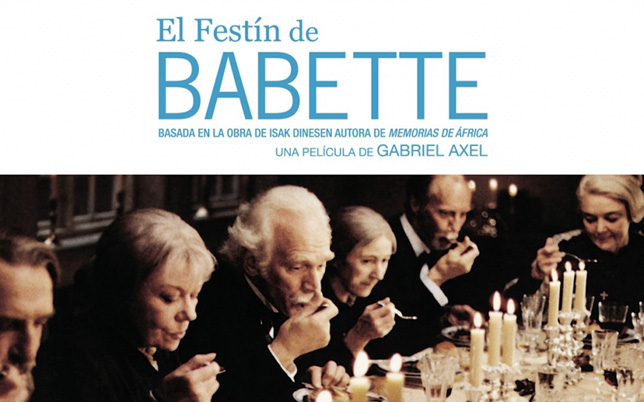
- Industry
Gabriel Axel: A Dane at the Globes
Danish director Gabriel Axel, a Golden globe nominee for his Babette’s Feast (1987) died last month at age 95. His was one of seven Golden Globes nominations garnered by Danish films over the history of the Awards, from The Word, (Carl Theodor Dreyer’s penultimate movie, and his only critical and commercial success) that won Best Foreign Film in 1956, to Susanne Bier’s In a Better World, the 2011 winner.
Ironically when his film was nominated Axel lost to another Danish entry that was also nominated that year and won the Golden Globe for Best Foreign Movie of 1989, compatriot’s August Bulle’s Pelle the Conqueror. (For Oscar consideration, however, Babette’s Feast was entered and won in 1987, the first Danish movie to win an Oscar, ,while Pelle was entered and won the Oscar a year later). Despite its small population, Denmark has an important place in world cinema. It has been producing films since 1897, and Danish directors have drawn world attention and respect, from Carl Theodore Dreyer whose The Passion of Joan of Arc (1928) was named the most influential film of all time by the curators of the Toronto International Film Festival, to Lars von Trier co-founder of the Dogme 95 film collective, whose films collected 14 selections to the Cannes film festival alone, and won six major awards there.
Between the two is Gabriel Axel who was born in Denmark, and got his start on Danish television in the early fifties as an actor and a director. Axel moved on to direct features, mostly light comedies and soft erotic fare for the Scandinavian market. He gained international fame with The Red Mantle, [1967), a saga set in 1100 and shot entirely on location in Iceland, followed by the documentary Danish Blue (1968), which mocked Denmark’s censorship laws at the time. A year later Denmark legalized pornography.
Babette’s Feast, 20 years later, was Axel’s best and most awarded feature. A superb adaptation by Axel of the 1950 short story written by Danish author Karen Blixen (under her nom de plume of Isak Dinesen) and starring French actress Stephane Audran in the title role. It is a bittersweet melding of comedy and poignant social observation that skillfully captures the bleak landscape and puritan life in Danish Jutland in the 1870s. There two spinster sisters live an austere and religious life, that is changed when Babette, a refugee from war torn Paris enters their lives and becomes their cook-housekeeper. When she wins the Paris lottery, she spends it all on ingredients for a lavish feast she cooks for her patrons, a sumptuous once-in-a-lifetime meal, from caviar and turtle soup to quail, fois gras and truffles, accompanied by fine wines and liquors, all served on china and crystal which Babette buys for the occasion. It is a lavish and cathartic event for her, and for her ascetic Danish employers and the community, which ultimately leads them to question their life-long denial of earthly pleasures.
Axel has spent most of his childhood in France, away from his native Denmark. He spoke fluent French, was immersed in French culture and made a number of films for French television from 1977 to 1986. It was then that he was attracted to Babette’s Feast – and he was the best person to put on film the contrast between French hedonism and Danish stoicism and self-denial.
Axel continued to make films for another two decades, making his last feature in 2001, but he never got close to the excellence of his Babette’s Feast, the 1989 Golden Globe nominee which has the added distinction of being named by Pope Francis. as his favorite movie. When told that Babette spent all her money on the feast, her Danish employer says, “Now you will be poor the rest of your life”, to which Babette replies, “An artist is never poor.” Gabriel Axel, film director, born 18 April 1918; died a rich man 9 February 2014.
Yoram Kahana